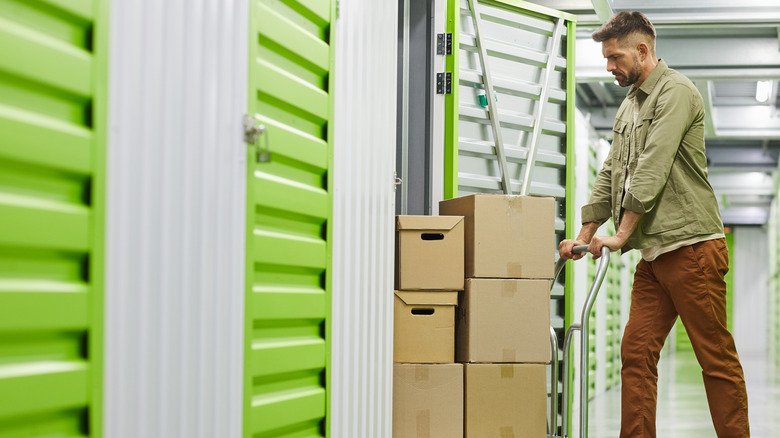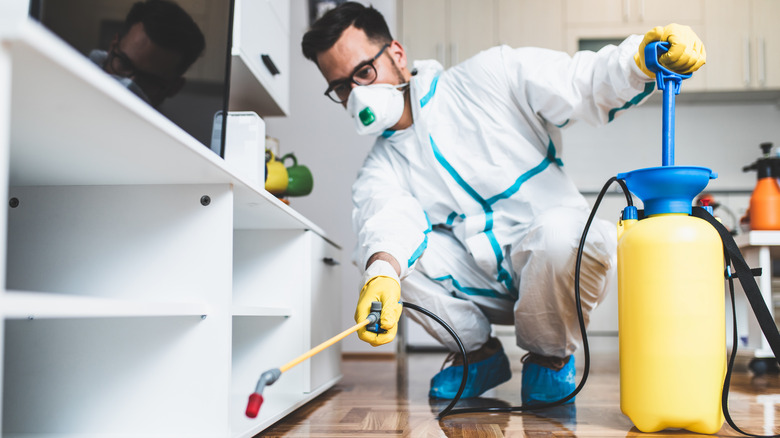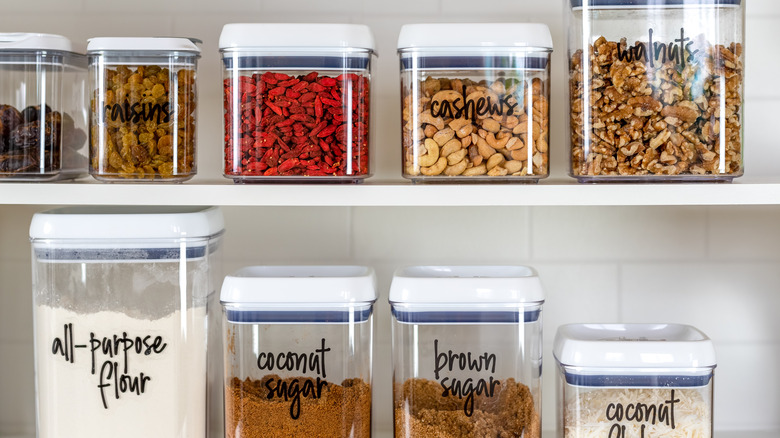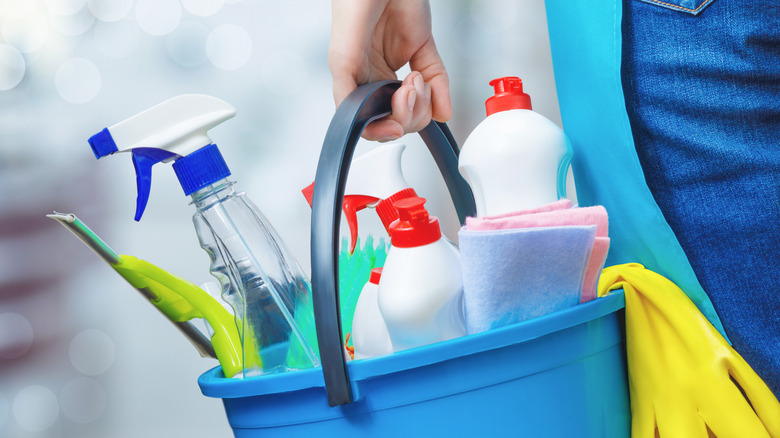How To Keep Pests Out Of Your Stored Items
No one wants pests in their home, but they can be an even bigger problem when they invade your storage areas. Whether you're storing food, clothing, furniture, or any other items, it's important to take steps to keep pests out. Whether you store a lot of items or very little, pests can quickly become a problem. Cockroaches are attracted to food and moisture, while moths and silverfish love paper, according to Reader's Digest. All of these pests can quickly multiply, leaving you with an infestation in no time.
Why is it important to keep your stored items safe from pests? Pests can damage your stored items, contaminate them with diseases, and even cause fires. They can sometimes be difficult to get rid of once they've infested an area, so it's important to take preventive measures. Luckily, there are a few simple steps you can take to keep pests out of your stored items.
Use peppermint
According to Biome, pests hate the smell of peppermint. The strong aroma deters many pests, and it's a safer alternative to using pesticides. You can either buy peppermint oil or grow your own mint plants, making it cost-effective as well.
To use peppermint oil, simply add a few drops to a cotton ball and place it in your storage areas. Place them around the perimeter of the unit and near any cracks or crevices that serve as potential entry points. Another method involves adding a few drops to a spray bottle filled with water and using it to mist the area. If you store items in your home garage, you can also plant some mint in your garden to ward off pests.
These methods work because the oil evaporates and fills the area with a strong peppermint smell. The pests will be deterred and won't want to infest the area. Lastly, Peppermint oil lasts for a long time, so you won't need to reapply it very often. However, if you're using the cotton ball method, you'll want to replace them at least once a month.
Inspect items and containers
Before you bring any new items into your storage areas, be sure to inspect them for pests. If you see any signs of infestation, do not store the item. According to Reader's Digest, some of the signs of infestation include small holes in fabric, droppings, egg casings, and dead insects. If you find any of these signs, it's best to get rid of the item. You don't want to risk bringing pests into your home. Inspecting your items before storage helps to ensure that you're not accidentally bringing pests into your home. Be mindful of what you're storing, as items such as food tend to expire quickly, which can also attract pests.
Another way to keep pests out of your stored items is to store them in pest-proof containers. There are a variety of different types of pest-proof containers available, so be sure to choose one that is appropriate for the type of item you're storing. While not the most foolproof method, keeping your storage areas clean and using pest-proof containers are both effective ways to deter pests. You'll still want to regularly inspect your items and containers for damage to ensure your storage unit, garage, attic, or other areas you're keeping stuff in remain pest free.
Use chemical treatments
If you have a severe pest problem, you may need to use chemical treatments. Be sure to use safe, effective products and follow the directions carefully. Some chemical treatments include baits, sprays, and foggers.
Baits are a popular choice for many because they're easy to use and don't require much effort. Simply place the baits around your storage areas and wait for the pests to be attracted to them. The baits will then kill the pests. Sprays are another option and can be used directly on pests. Be sure to use a safe, effective product and follow the directions carefully. Foggers are a more heavy-duty option and should be used as a last resort. They work by filling the area with a fog that kills the pests. However, according to the EPA, the aerosol propellants in foggers are flammable and can lead to an explosion if not used correctly. Be sure to follow the directions carefully and only use foggers as a last resort.
No matter which method you choose, be sure to follow up with regular inspections to ensure the pests are gone for good.
Avoid storing food
Food is a major attractant for pests, so it's best to keep it out of your storage areas. Even pantries are prone to pests, according to University of Minnesota Extension. Critters like mice and cockroaches eat almost anything in sight. If you have food in your storage areas, these pests will find it and infest the area. Once they've found food, they'll start to multiply and become a major problem. Food also tends to expire easily, so it's not worth the risk of storing it unless you're sure you'll use it before it goes bad.
If you do need to store food, be sure to keep it in airtight containers and away from the walls and floor. Another food storage method is to freeze it if possible, which will keep pests away and prevent the food from going bad. Pests tend to stay away from frozen food because it's not as easily accessible. These methods work best for food storage due to the fact that pests are always on the lookout for food sources. By keeping your food stored properly, you can avoid attracting pests to your home. Since food expires so quickly, it's best to only store what you need and inspect it frequently.
Keep it clean
Pests are attracted to dirt, so it's important to keep your storage areas clean. Vacuum and sweep regularly, and mop any spills immediately. Be sure to clean behind and under your stored items as well. The easiest way to keep your storage unit clean is to keep your space clutter-free. Pests love to find places to hide, and a cluttered unit or room provides the perfect opportunity. By getting rid of any unnecessary items, you can reduce the number of places pests can hide.
Other ways to keep your storage area clean include sweeping, mopping, and vacuuming regularly. Be sure to clean behind and under your stored items as well. Family Handyman breaks down some of pests favorite hiding places. These areas are usually overlooked but can attract pests nonetheless. You should clean your storage area as often as possible to prevent pests from taking up residence. Regular cleaning will also alert you early on to any issues, and you can banish the bugs and rodents before things turn into a bigger issue.





